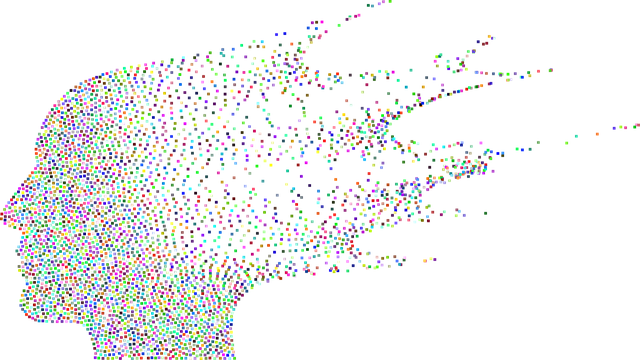Mental health data management is key to improving therapy strategies, especially for specialized treatments like EMDR. By collecting, preparing, and analyzing diverse patient information, including demographics, diagnoses, treatment outcomes, and qualitative feedback, therapists can identify trends in EMDR response. This enables the refinement of techniques and personalized interventions, enhancing therapy for EMDR and overall patient care. Advanced data analysis, integrated with stress reduction methods and cultural sensitivity, contributes to culturally competent mental healthcare, leading to better patient outcomes. As data analysis tools evolve, prioritizing ethics ensures trust and fairness, crucial for accessible and effective treatments like EMDR therapy. Future advancements should focus on integrating technology while maintaining robust ethical standards.
Mental health data analysis is a powerful tool for understanding and improving well-being. This comprehensive guide explores key aspects, from understanding mental health data through collection and preparation, to the transformative role of EMDR (Eye Movement Desensitization and Reprocessing) therapy. We delve into advanced data analysis techniques, revealing valuable insights and practical applications. Additionally, we address ethical considerations and glimpse into future trends shaping EMDR therapy and mental health data analysis worldwide.
- Understanding Mental Health Data: Collection and Preparation
- The Role of EMDR in Therapy: Techniques and Benefits
- Analyzing and Interpreting Data: Insights and Applications
- Ethical Considerations and Future Trends in Mental Health Data Analysis
Understanding Mental Health Data: Collection and Preparation

Understanding Mental Health Data is a critical first step in any analysis process. Effective collection and preparation of data lay the foundation for accurate interpretation, leading to evidence-based insights and improved mental healthcare strategies. This involves gathering diverse data points such as patient demographics, diagnosis records, treatment outcomes, and qualitative feedback from therapy sessions including EMDR (Eye Movement Desensitization and Reprocessing). The data preparation stage includes cleaning and normalizing this information, addressing missing values, and ensuring data integrity to support robust analysis.
In the context of therapy for EMDR, properly prepared data can highlight trends in patient responses to treatment, potentially revealing the efficacy of specific techniques or identifying sub-populations that benefit from tailored interventions. Moreover, integrating knowledge from Stress Reduction Methods and exploring Cultural Sensitivity in Mental Healthcare Practice through data analysis allows for more personalized and culturally competent mental wellness support. Effective data handling is thus a cornerstone in advancing mental healthcare delivery and improving patient outcomes.
The Role of EMDR in Therapy: Techniques and Benefits

Eye Movement Desensitization and Reprocessing (EMDR) is a highly effective therapy for addressing complex trauma and its associated mental health challenges. This approach combines various techniques, including bilateral stimulation through eye movements, to help individuals process and resolve distressing memories and emotions. The core principle behind EMDR lies in facilitating the brain’s natural healing process, enabling it to reprocess traumatic memories from an adaptive perspective.
During therapy sessions, clients focus on specific traumatic events while engaging in bilateral stimulation, typically through side-to-side eye movements or tactile gestures. This process helps desensitize individuals to the trauma, reducing the intensity of associated emotions and negative beliefs. By enhancing emotional regulation and promoting self-awareness exercises, EMDR enables patients to develop effective coping skills, leading to lasting improvements in mental health and overall well-being.
Analyzing and Interpreting Data: Insights and Applications

Analyzing and interpreting mental health data is a powerful process that offers valuable insights for improving individual well-being and overall public health. Through rigorous analysis, patterns and trends within large datasets can be uncovered, allowing researchers and practitioners to identify risk factors, predict outcomes, and develop targeted interventions. For instance, by applying advanced statistical methods to survey responses or clinical notes, professionals can gain a deeper understanding of mental health challenges prevalent in specific communities. This information is crucial for designing effective mental health education programs and tailoring support services to meet diverse needs.
One such innovative approach gaining recognition in therapy is Eye Movement Desensitization and Reprocessing (EMDR). By analyzing data from EMDR sessions, researchers can identify common themes and patterns related to traumatic experiences and their impact on individuals’ mental wellness. This analysis enables the refinement of treatment protocols, improves conflict resolution techniques, and ultimately enhances therapeutic outcomes. Moreover, encouraging clients to maintain a mental wellness journal as part of their care can provide rich qualitative data for interpretation. Journaling exercises guide individuals to reflect on their emotions, thoughts, and behaviors, offering valuable insights that can be shared with therapists during sessions to facilitate deeper exploration and personal growth.
Ethical Considerations and Future Trends in Mental Health Data Analysis

As mental health data analysis becomes increasingly sophisticated, ethical considerations take center stage. With the collection and interpretation of sensitive information, ensuring privacy and confidentiality is paramount. Researchers and professionals must adhere to strict guidelines to protect individuals’ identities and maintain the security of their data. Informed consent, data minimization, and transparent reporting are key practices to foster trust among participants and stakeholders. Moreover, fairness and bias in algorithms are critical issues, especially when considering diverse populations and cultural contexts, ensuring that mental health interventions like EMDR therapy for treating trauma are accessible and effective for all.
Looking ahead, the future of mental health data analysis lies in integrating advanced technologies while prioritizing ethical frameworks. Artificial intelligence and machine learning can enhance diagnostic accuracy and personalize treatment plans, but their development must be guided by robust ethics. By combining these tools with Empathy Building Strategies and Depression Prevention techniques, professionals can improve Emotional Well-being Promotion Techniques at scale. This balance between innovation and ethical stewardship will shape a more inclusive and effective mental healthcare landscape.
Mental health data analysis is a powerful tool that offers valuable insights into individual well-being. By understanding and interpreting this data, professionals can enhance therapy approaches, such as EMDR (Eye Movement Desensitization and Reprocessing), providing more effective treatments. The ethical considerations and future trends in mental health data analysis ensure its responsible use, fostering a brighter and healthier future for those seeking therapy, especially through innovative techniques like EMDR.














